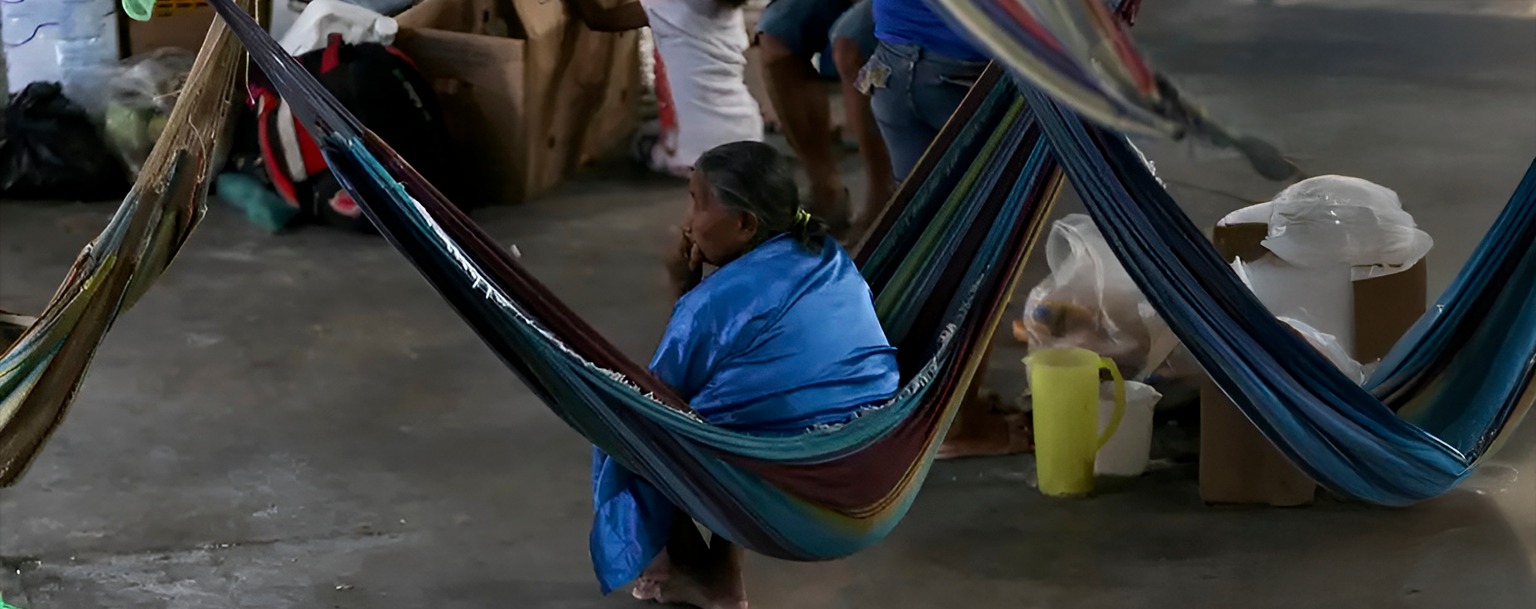Agencies seek R$ 1 million in compensation for Venezuelan Indigenous people in Brazil
22 de January de 2025

By Ian Vitor Freitas – By Cenarium
BOA VISTA (RR) – The Federal Public Defender’s Office (DPU) and the Federal Public Prosecutor’s Office (MPF) have filed a joint public civil action in the Federal Court of Roraima, seeking R$ 1 million in reparations for damages caused to more than 310 Indigenous people during the sudden evacuation of the Janokoida shelter, located in the municipality of Pacaraima (RR), near the Venezuelan border.
The lawsuit was filed on January 15 against the federal government, the National Foundation for Indigenous Peoples (Funai), the government of Roraima, and the municipality of Pacaraima. With support from Operation Acolhida, the site served as a shelter for Indigenous migrants from the Warao and E’ñepá ethnic groups. The shelter had basic infrastructure, including hammocks, bathrooms, and common areas.
According to the document, the lawsuit aims to seek reparations for the damages caused during the sudden evacuation of the Janokoida shelter in November 2024. Furthermore, it demands assistance for the more than 300 displaced individuals, including children and adults, who were left without support due to the decision. The institutions also request the creation of a protocol for relocating people in similar circumstances.

The Janokoida shelter was established in 2017 in response to the worsening economic and social crisis in Venezuela, which increased the migratory flow to Brazil. According to the MPF, the agencies named in the lawsuit should pay R$ 1 million to compensate for the harm caused to Indigenous migrants.
Landslide Risks
Technical reports since 2022 indicated landslide risks in the area where the Janokoida shelter was located. Municipal and state civil defense agencies warned that the shelter, situated next to a hillside, was in a high-impact environmental area. The lawsuit highlights that despite these warnings, the authorities responsible for the shelter failed to take any preventive measures for nearly two years.
The institutions argue in the lawsuit that the removal was carried out abruptly, without prior consultation with the shelter residents or oversight and support agencies, such as the DPU and MPF, thereby violating the fundamental rights of vulnerable individuals. Additionally, it questions why the families were not relocated to another shelter in the city to mitigate the impact on their lives.
“The federal agents managing Operation Acolhida were fully aware months before the events of the terrain’s susceptibility to landslides,” a section of the lawsuit states.
Displacement and Vulnerability
Due to the immediate closure and lack of notice for the shelter residents, 310 individuals, including children enrolled in local schools, were left without time to reorganize and without support from authorities. The decision led families to homelessness, exposing them to food insecurity and disarray.
The DPU and MPF demand that federal, state, and municipal governments take measures to ensure dignified assistance for the migrants, emphasizing safety and respect for human rights.
The lawsuit proposes compensation for collective moral damages as well as the creation of an intercultural protocol for relocations in humanitarian shelters to prevent similar cases in the future. The DPU and MPF argue that actions must respect the right to information, planning, and organization of the affected families, considering their cultural specificities.
The lawsuit also requests that the federal government, the State of Roraima, and the municipality of Pacaraima promote the refurbishment of the property where the shelter operated, should technical studies prove its feasibility.

